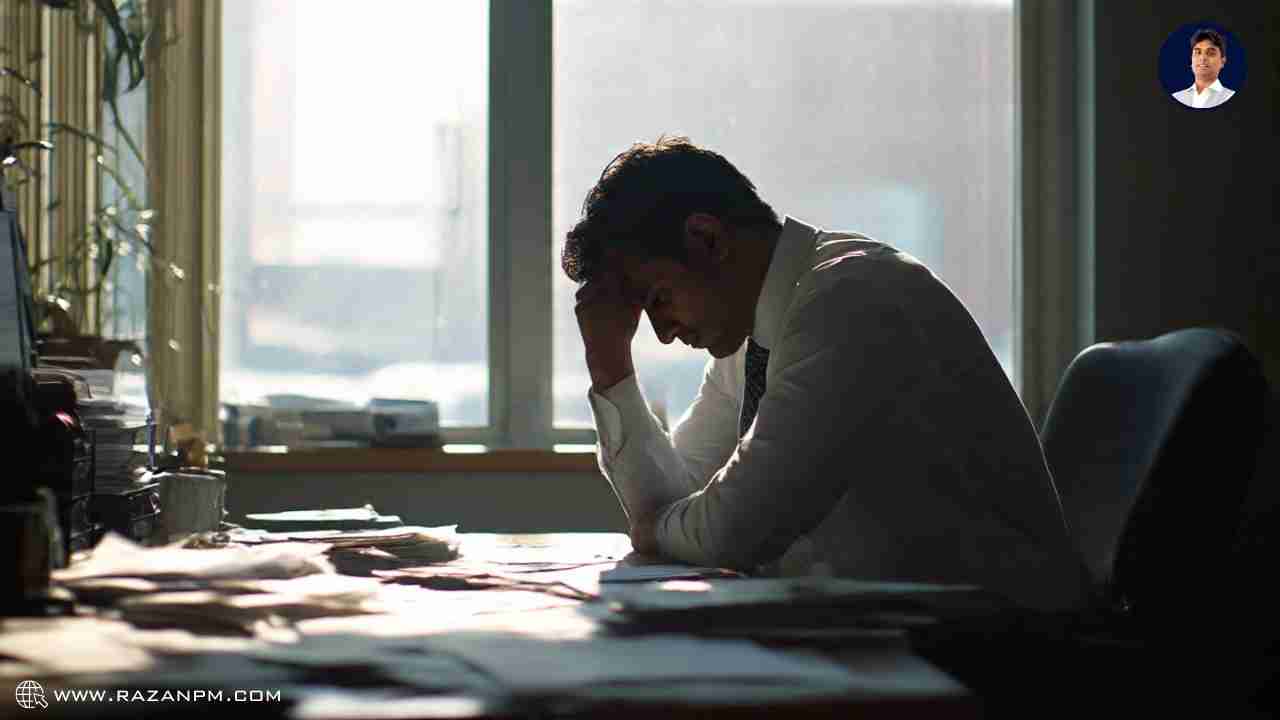Ever noticed how a tiny comment like “You don’t look like you belong here” can sit in your heart for days?
We laugh it off at first, make a joke — “Haha, maybe I don’t!” — but somewhere deep down, a quiet voice says,
“Maybe they’re right. Maybe I’m not enough.”
And that’s where it begins.
Not with big betrayals or dramatic heartbreaks, but with small, everyday biases that slowly chip away at your self-worth.
As a Counsellor, I’ve seen this countless times — people who walk into my clinic smiling, saying, “It’s nothing serious,” and yet their eyes tell a story of invisible wounds.
also read: how to tell if emotional separationhas already started?

Bias — whether it’s about gender, color, body shape, background, or profession — doesn’t just hurt your ego; it hurts your nervous system.
Every time you face discrimination, your brain’s amygdala (the emotional alarm system) lights up.
It says, “You’re not safe.”
Over time, repeated exposure to subtle or overt bias creates a psychological pattern — a constant fight-flight-freeze mode.
So while you’re smiling on the outside, your mind whispers, “Stay small. Don’t attract attention. Don’t get hurt again.”
And slowly… joy fades. Motivation drops. Hope begins to dim.
also read: why kind words create misunderstanding?
Let’s be honest — discrimination isn’t always loud. Sometimes, it’s a polite tone, an avoided eye contact, a denied opportunity.
But here’s the truth: You are not imagining it.
These microaggressions (small, everyday slights) accumulate like invisible bruises.
Over time, they lead to emotional exhaustion, self-doubt, and eventually — depression.
In therapy, I’ve had patients say,
“I’m not sad because of one incident. I’m sad because I keep feeling invisible.”
also read: how caregiving triggers hidden depression?

1. Persistent low mood – even when “nothing major” happened.
2. Hypervigilance – overthinking every conversation or reaction.
3. Avoidance behavior – not attending social events to avoid being judged.
4. Loss of confidence – feeling undeserving of success or love.
5. Physical fatigue – because emotional stress drains the body too.
also read: how fibromyalgia fuels hiddendepression?
According to DSM-5 (Diagnostic and Statistical Manual of Mental Disorders),
Major Depressive Disorder (MDD) can be triggered by chronic psychosocial stressors, including discrimination, rejection, or exclusion.
Meanwhile, the ICD-10 (International Classification of Diseases) lists “reaction to severe stress and adjustment disorders”, recognizing that prolonged emotional strain — like being treated unfairly — can lead to depressive symptoms.
So when we say “bias leads to depression,” it’s not just emotional poetry — it’s clinically proven.
also read: why saying i love you is not enough?

Multiple studies (for example, published in The American Journal of Public Health) show that discrimination significantly increases the risk of depression and anxiety.
So if you’ve ever wondered why that one comment or rejection felt so heavy — science agrees with you.
also read: why emotional intimacy feels unsafefor some partners?
Let me share a story (with permission, names changed):
Aditi, a 32-year-old marketing professional, came to me saying,
“I don’t think I’m depressed. I’m just tired of trying.”
As we talked, she shared how her workplace subtly sidelined her after she returned from maternity leave.
She wasn’t shouted at, just quietly excluded. Projects she once led were reassigned. Her manager said things like,
“We thought you’d want to focus on family now.”
That bias — disguised as “consideration” — made her question her value.
Within months, her sleep patterns changed, she felt drained, and she lost confidence in her abilities.
Therapy helped her name the real wound — not her “inability to cope,” but society’s inability to treat her fairly.
Once she recognized that truth, healing began.
also read: how hormonal shifts can triggerdepression?

If you’ve faced bias or rejection and feel its emotional echo, here’s one practical tool I often share with my clients —
Step 1: Write down every recent moment that made you feel “less than.”
Step 2: For each, write one counter-truth. For example:
Step 3: Speak these counter-truths aloud every morning for 7 days.
Yes, bol ke bolo — even if it feels weird.
This small act rewires your self-schema (the mental picture you hold about yourself).
Within weeks, you’ll feel a subtle shift — a sense of emotional grounding.
also read: how chronic pain fuels depression atany age?
Bias-related depression isn’t healed overnight.
The scars it leaves are layered — emotional, cognitive, and social.
Therapy helps you unpack those layers safely: how to set boundaries, how to rebuild self-esteem, how to re-train your mind to not internalize rejection.
That’s a process — and it deserves guidance.
So if today’s blog opened even a small door of self-awareness, know this: The full journey begins when you decide to walk through it.
also read: when silence turns intomisunderstanding?
If what you just read feels familiar — the invisible exhaustion, the quiet questioning of self —
please remember: You don’t have to figure it out alone.
I’ve seen people heal — deeply, beautifully — when they finally allow themselves to be heard without judgment.
If you feel ready to take that next step,
✨ Book your 1:1 Consultation — Let’s start your healing journey together.
Because you deserve to feel seen, safe, and strong again. 💖
👉 Begin Your Journey with a 1 on 1 Consultation
👉 Begin Your Journey with a 1 on 1 Consultation

Discrimination activates chronic stress in the brain, leading to hormonal imbalance and low mood.
When people face repeated rejection or bias, their self-esteem drops and emotional fatigue sets in — gradually developing into Major Depressive Disorder (MDD).
also read: the emotional burden behind thebody’s battles
Yes. Studies show that bias and microaggressions trigger the same neural pathways as trauma.
Even subtle comments or exclusions can cause anxiety, shame, and depression over time, especially when the person cannot openly express their hurt.
also read: 10 coping tools for depression aftertrauma
Typical signs include:
If these persist for more than two weeks, clinical support is recommended.
also read: why love feels hot then cold?
Q4. How can I recover from emotional trauma due to bias?
Start with self-validation. Recognize that the discrimination was real and unfair.
Practice small healing steps — journaling, mindfulness, and reframing negative beliefs.
Therapy can help you rebuild self-worth and develop healthy coping skills.
also read: digital romance, real loneliness genz truth
Therapies like Cognitive Behavioral Therapy (CBT), Acceptance and Commitment Therapy (ACT), and Narrative Therapy are effective.
They help you challenge internalized bias, release shame, and rewrite your personal story with compassion and strength.
also read: 6 warning signs of depression thatincreases heart risk
Absolutely. Repeated workplace bias leads to emotional burnout, helplessness, and chronic stress.
Research links such experiences with clinical depression, low job satisfaction, and even physical health issues like fatigue and headaches.
also read: why small fights turn into bigarguments?
Acknowledgment. Accept that what you went through was unfair — not your fault.
Then, take one small action for emotional safety: talk to a therapist, set a boundary, or practice the “Reclaim Your Space” exercise shared in the blog.
also read: overthinking messages is killingyour peace
If you notice persistent sadness, irritability, or feelings of hopelessness for more than two weeks, don’t wait.
A mental health professional can help you heal deeply and safely from discrimination-related trauma.
also read: blood sugar battles affect mentalhealth
